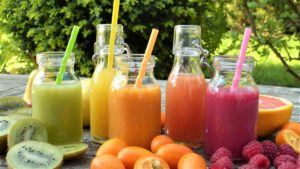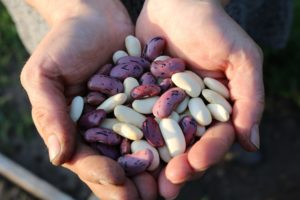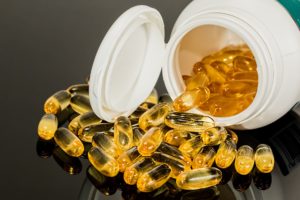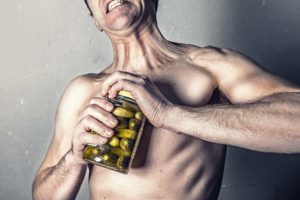The vegan diet is currently being massively pushed by marketing – it is considered a trend, extremely healthy and also sustainable. Ultimately, however, it is a purely plant-based diet, which for many can be more restrictive than useful. I would like to address this last point in this blog article and show you what you should consider if you want to eat a vegan diet.
Advantages of being vegan
Most people who follow a vegan diet have sufficient nutrients (apart from omega 3 and vitamin B12 – see below). Vitamins , most minerals and above all secondary plant substances can be covered very well with a vegan diet and, above all, well absorbed. In addition, vegans are better protected against common diseases such as obesity, diabetes or gout . As a rule, people who follow a vegan diet eat more consciously than others. But what do you have to consider? You will find out now.
Lose weight with a vegan diet?

You can eat vegan and still live unhealthily. Just as there are various types of sausage, breaded chicken nuggets, ready-made soups, etc., there are also heavily processed vegetable ones Food: Sausage substitute products, vegan cheese and soy products, etc. The list of ingredients should not resemble the table of contents of a long novel, neither for animal or plant-based diets nor for mixed foods. Such highly processed foods are never healthy and shouldn’t be part of your daily diet.
But caution is advised even with supposedly healthy products: Freshly squeezed fruit smoothies that are naturally vegan contain e.g. B. Lots of fructose that the body would otherwise never have to process at once. It makes a difference whether you eat a piece of fruit here and there or drink a lot of fruit at once. You would never eat as many as you can in a single smoothie (with the possible exception of frutarians – this diet should be strictly questioned anyway). So do without smoothies completely? No, but you shouldn’t consume them every day. It is well known that the dose makes the poison.

You see: Even when it comes to “vegan” you won’t get any further with black-and-white thinking. Ultimately, fat reduction, but also muscle building, is always about the calorie balance and a well-functioning hormone system – regardless of how you eat.
Deficiencies through vegan diet
The fact is: Everyone has to consume micro and macronutrients and minerals – a vegan diet does not change anything. What is not ingested through food must be replaced by preparations. Therefore, the following points should be observed:
Protein:
With a vegan diet, it is much more difficult to meet your protein requirements than with an animal and vegetable diet Mixed food. This applies even more to an increased need, e.g. B. as a competitive and strength athlete, as a popular athlete who wants to lose weight in a healthy way, or as an aging person who naturally has to accept muscle loss and decreasing strength values.
Strength athletes in particular come with a balanced vegan diet i. d. Usually difficult to access the required proteins.
example : A slightly overweight adult man weighing 90 kg wants to lose weight. He does strength and endurance training. For this, an amount of approx. 1.5 g protein per kg body weight is recommended – that’s 135 g protein per day. For example, he would have to consume approx. 1.15 kg (!) Tofu, 1.85 kg white beans, 2.1 kg kidney beans or 3.2 kg chickpeas daily to increase his protein requirement cover.
And that’s just a simple calculation based on the values stated on the packaging. In order to get the same amount of protein as with animal products, about a third would have to be added to the stated amounts. The reason: vegetable protein has a lower biological value, which means that the body cannot use it 1: 1 as protein (see below).
In comparison, 600 g of lean meat like chicken would be enough for this daily requirement.
Did you know? That is the reason why there is not a single professional bodybuilder (Mr. Olympia and Co.) who follows a vegan diet. In this extreme discipline, you would simply manage to cover the high calorie and protein quantities with immense effort and under great circumstances and at the same time consume very little fat. But this is necessary for such supported athletes.
If you as a vegan, for example, want to lose weight and do not want to put your muscles at risk, you have to bear in mind that you are severely limiting your lifestyle. As you know, this requires a sufficiently high amount of protein despite the lower calories (which it takes for a diet). Most vegan protein sources also have a not inconsiderable amount of carbohydrates. The fat must not be forgotten in the daily nutrition plan – and you are confronted with the problem: The calories are fine, but the protein supply is lagging behind. Here you can almost only make do with vegan protein shakes … and that daily (!). You have to like that.

Plant foods naturally have a lower protein content than animal products. In addition, their amino acid profile (number of important amino acids) is inferior. This is admittedly less of a problem – the body can produce most of the amino acids it needs itself. However, a little more building materials are required for this, so you would have to consume more vegetable proteins.
Vitamin B12:
As the vegans among you probably know, the vital vitamin B12 does not occur in the plant world – except in a single type of algae. This vitamin is made exclusively by microorganisms – not in humans, but in many animals. We are therefore dependent on the supply of meat, fish, liver, milk, cheese or eggs. Vegans can hardly avoid an external supply. You should therefore definitely supplement B12 if you are on a purely vegan diet.
A deficiency in vitamin B12 inevitably interferes with the production of stem cells in the bone marrow. The result is anemia. In addition, B12 is involved in important metabolic processes. At around 1 microgram, the daily requirement is so low that a “normal” diet (one that contains animal products) would be sufficient to prevent a deficiency. Attention: It can take two to five years for the first consequential damage caused by a defect to appear. So you shouldn’t take this topic lightly.
Omega 3:

For a balanced ratio of omega-3 and omega-6 fatty acids, it is very important nowadays to have a adequate omega-3 intake to pay attention. We are literally overwhelmed by foods that contain Omega 6: Grain products such as pizza, bread, pastries or cakes, as well as vegetable oils, soy and meat from animals from fuel feed. Omega 3, on the other hand, is mainly contained in oily fish and meat from grass feed – that is, exactly in those foods that are neglected in a “normal” diet . There are vegetable sources of omega-3 (linseed oil, walnuts, etc.), but the amount and the poor conversion rate of the fatty acids contained make them almost null and void.
Note: Eat more Omega 3 (!) and less Omega 6.
So what should vegans do? It is best to supplement omega-3 capsules. There are now vegan omega-3 capsules (algae oil) if you don’t want to break with the vegan diet and don’t want to consume the better quality fish oil capsules.
Tip: Omega 3 has extremely positive effects on the entire organism. I can recommend anyone interested in this topic Contribution by Dr. I recommend Martina Ollesch . It explains the mode of action very clearly and also shows why plant-based omega-3 sources are hardly effective.
Recommendation

I would like to make it clear at this point that I do not want to talk anyone out of a vegan lifestyle. This is justified in certain aspects (sustainability, animal welfare, possibly environmental aspects, etc.). However, one should be clear about what “vegan” means for the body and not just follow a trend. I still recommend a natural diet made from plant AND animal sources in order to be well supplied.
Conclusion
To say that you can live healthier and lose weight through a purely plant-based diet is just as “wrong” as saying that it doesn’t work at all. However, it is much more difficult for vegans to meet their protein needs, and that is no triviality – especially in the long term! In addition, there are deficiencies in certain micronutrients that HAVE to be compensated for. The decision whether you want to be vegan or not is of course up to you.
The fact is: no type of diet per se makes you fit, slim and healthy! For that you have to do something yourself and get some information. 😉
